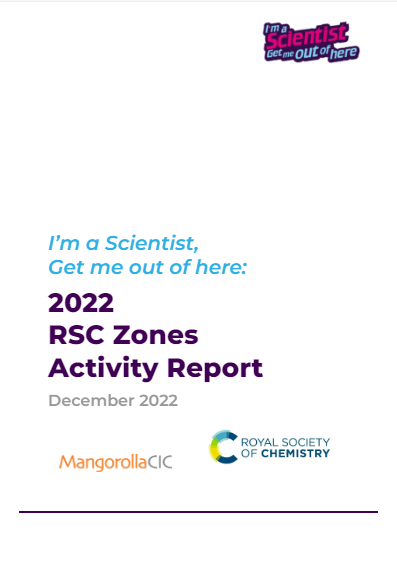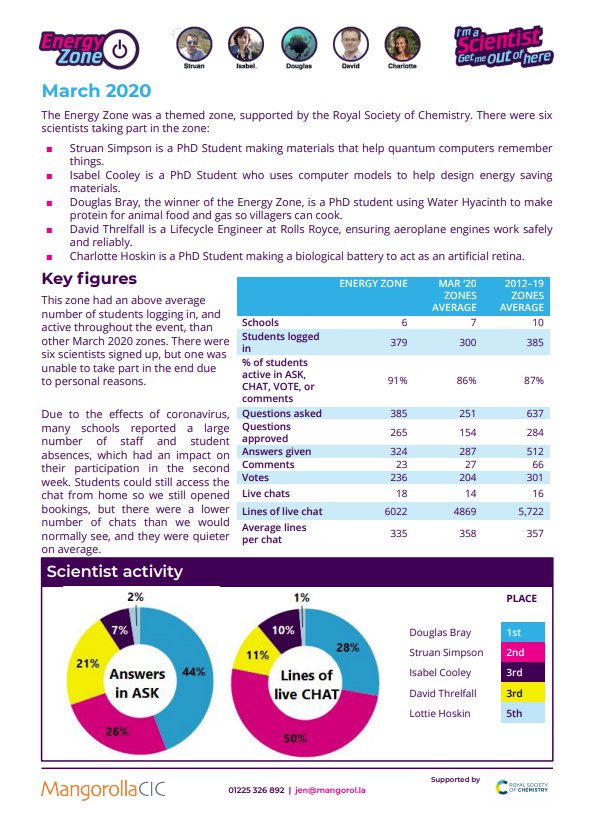RSC Funding Summary Report 2025
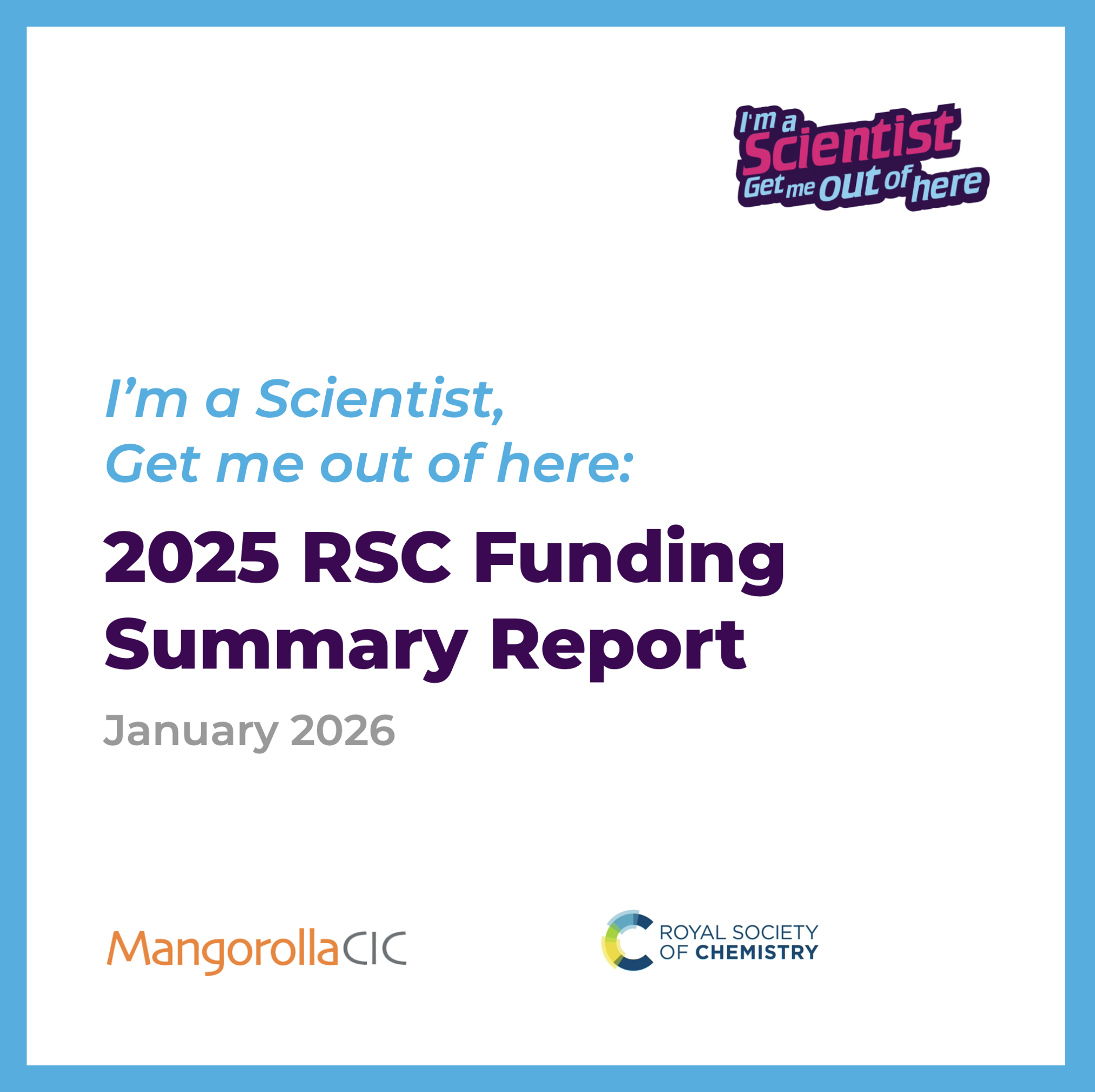
In 2025, the Royal Society of Chemistry (RSC) funded the I’m a… Programme (IAP) to engage students with the chemical sciences.
This report is a summary of the activity, interactions, and impact of the RSC-funded scientists and RSC members who took part in 2025.
Read a summary and download the report. Continue reading

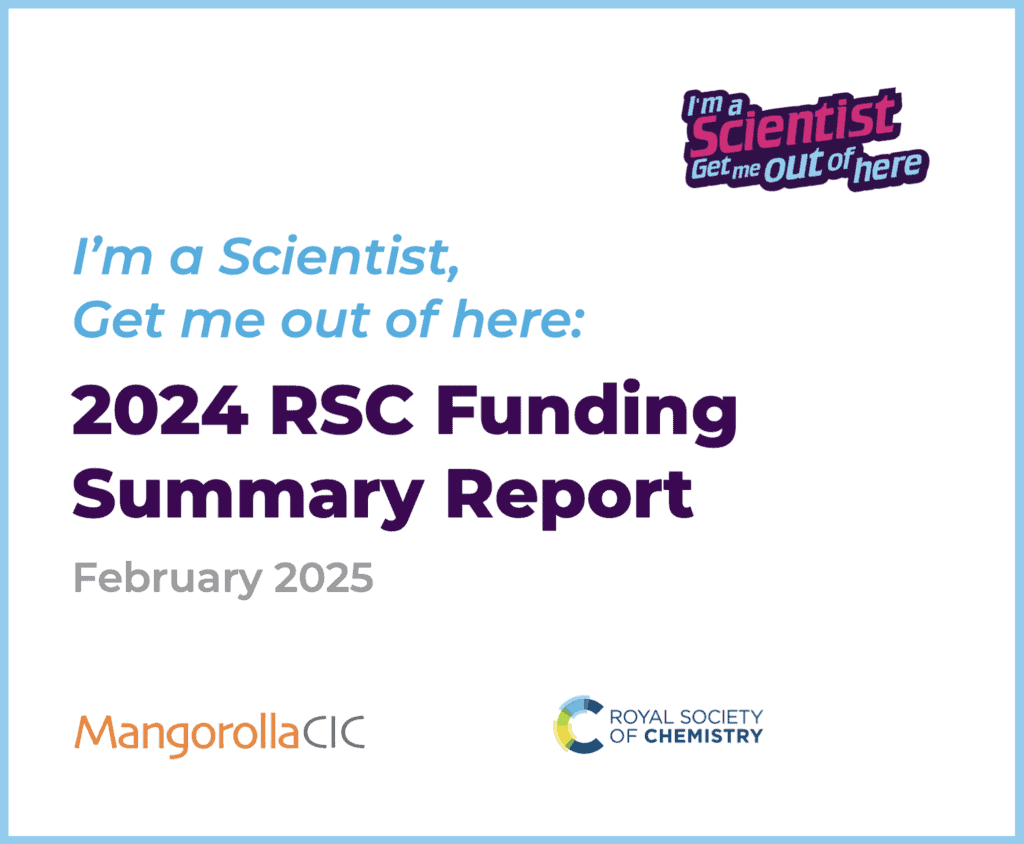
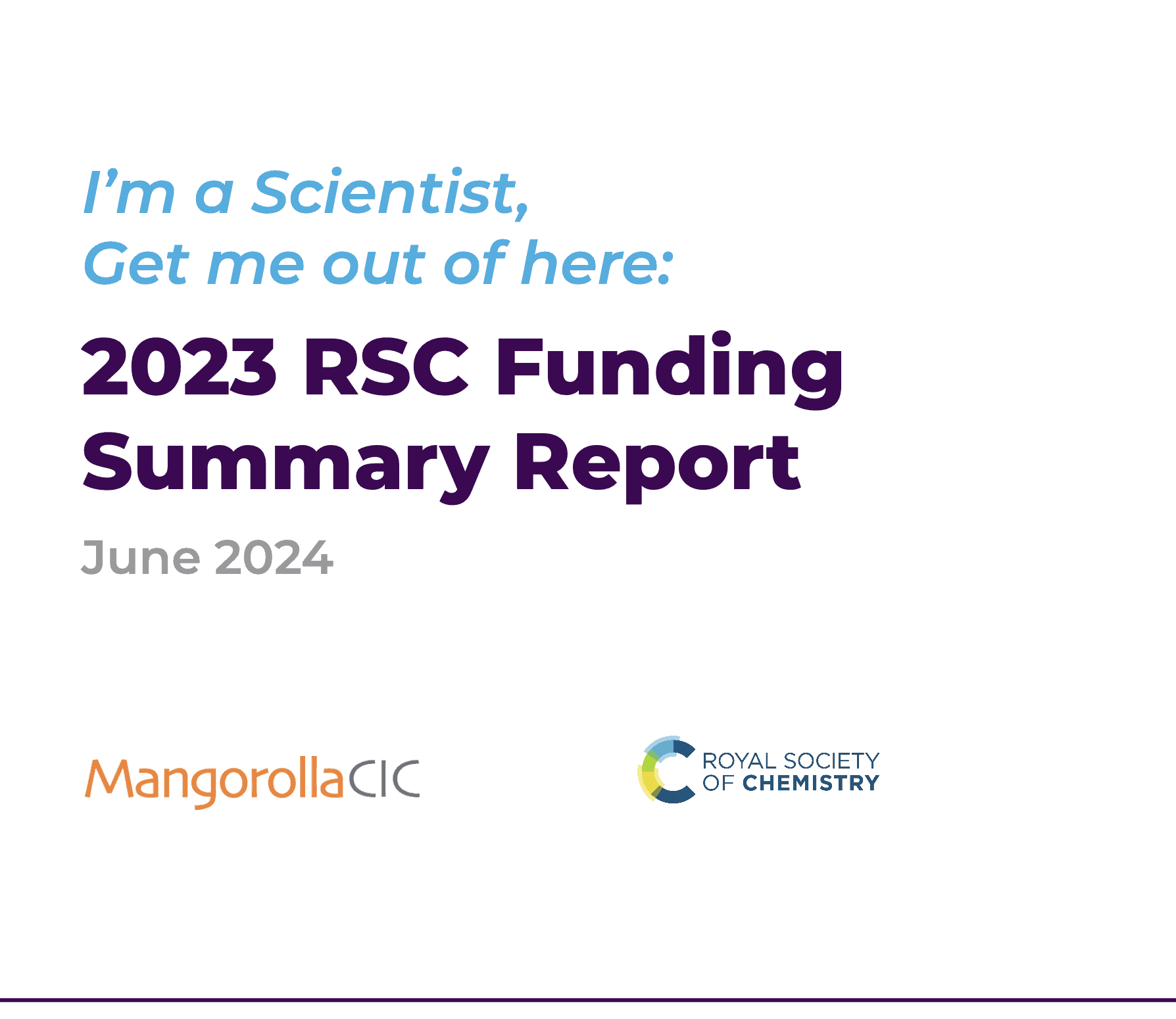
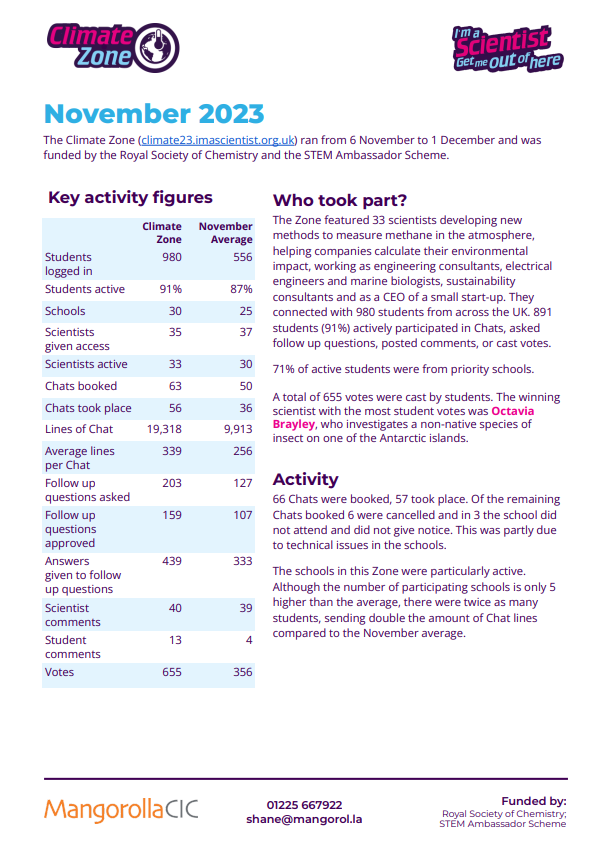 The
The 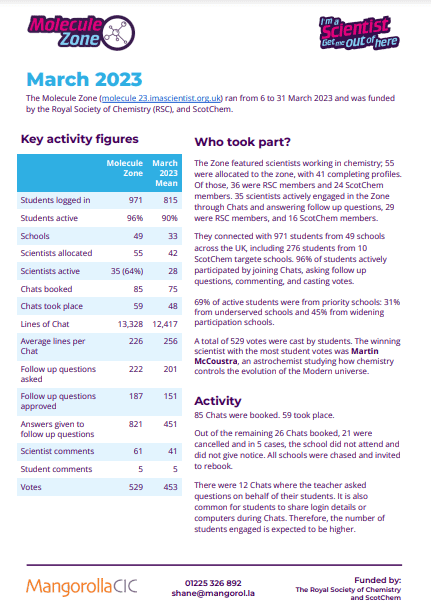 The
The 